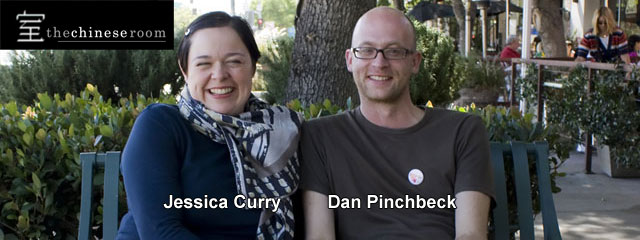
(фото отсюда)
Поразмышляв, почему бы мне не купить вебкамеру и не попытаться взять интервью у разных игровых разработчиков, я сделал единственный верный выбор – купил вебкамеру и попытался взять интервью у игрового разработчика. Первой “жертвой” моего полного непонимания, как работают видеозвонки Skype, стал Дэн Пинчбек (Dan Pinchbeck), креативный директор thechineseroom, студии, которая недавно выпустила свою первую коммерческую игру – Dear Esther. Изначально выпущенная как мод в 2008, она изменила представление многих людей о том, что можно сделать в видеоигре. А недавний коммерческий релиз, созданный совместно с невероятно талантливым дизайнером уровней Робертом Бриско (Robert Briscoe), помог Dear Esther стать известной для еще более широкой аудитории.
Учитывая мою любовь к игре (и работу над русским переводом игры), не удивительно, что мне было интересно узнать больше об одной из ключевых фигур стоявших за проектом. И хотя качество видео, моя неожиданно неуверенная речь и ужасный акцент (потому что давно разговорного опыта не было, я вообще хороший переводчик, честно -_-) не дают мне показать видеозапись самого интервью, но вы можете почитать, о чем мы говорили.
В первой части интервью мы говорим о неожиданном успехе Dear Esther, других ранних экспериментах студии, что делает хоррор игры хорошими, и почему Amnesia – отличная игра, важность интерфейса и счетчика жизни, и что мы оба любим и не любим в подсказках и туториалах игр.
Read more“Дорогой Дэн. Разговор с Дэном Пинчбеком. Часть 1”

